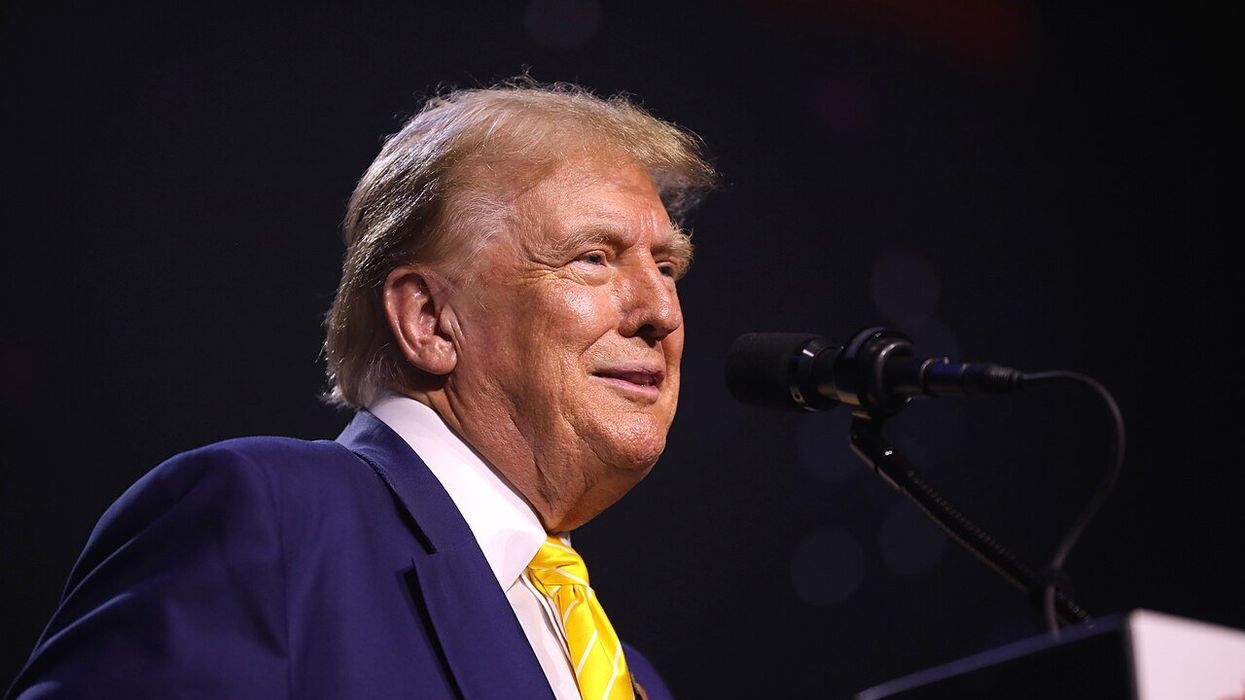Author warns Trump shooting may be followed by extended period of 'political violence'

Former President Donald Trump in Phoenix on June 6, 2024 (Gage Skidmore)
July 15, 2024 | 08:00AM ETFrontpage news and politics
The FBI has been conducting a thorough investigation of Thomas Matthew Crooks, the 20-year-old gunman who attempted to assassinate presumptive 2024 GOP presidential nominee Donald Trump during a campaign rally in Butler, Pennsylvania on Saturday afternoon, July 13.
Crooks, who was killed by U.S. Secret Service agents, didn't have a strong online presence. The gunman was a registered Republican, yet made a small donation to a progressive group. And his motivations for the Butler attack remain a mystery.
During an appearance on The New Republic's podcast, journalist/author Zack Beauchamp warned that the horrors of July 13 could be followed by more violence in the weeks and months to come.
READ MORE: Election bombshell: RNC uses fake electors to crown Trump
When host Greg Sargent noted fears that the United States could be facing a long, protracted period of political violence comparable to The Troubles in North Ireland, Beauchamp explained, "The issue is that political violence…. tends to emerge out of a sense that the system is failing. Whoever the person is, whatever their grievances are, whatever their cause is, they feel — in addition to being kind of an angry, resentful person, just on an individual level — that their grievances aren't being articulated and can't be addressed by the political system."
Beauchamp continued, "The issue we have in the United States right now is that due to our extreme polarization, there are people — a small minority of people…. a sizable minority nonetheless, who express willingness to take matters into their own hands because: (A) They feel frustrated by the system, and (B) They hate he other side so much, so fundamentally and see them as an enemy, an existential threat… They believe violence might be justified."
Sargent pointed out that no possible motivations on Crooks' part have been identified and that he could end up being like John Hinkley, Jr., who attempted to assassinate President Ronald Reagan in 1981.
The delusional Hinkley suffered from extreme mental illness and did not act for political reasons, but rather, believed he was in love with actress Jodie Foster and thought he was trying to win her affections. Foster was horrified.
READ MORE: Progressives condemn GOP attempts to blame Biden for Trump rally shooting
Sargent, warned, however, that some Republicans are making the "preposterous" claim that President Joe Biden and other Democrats are "to blame" for the attempt on Trump's life.
Beauchamp responded that Sen. J.D. Vance (R-Ohio), Rep. Marjorie Taylor Greene (R-Georgia) and other "really prominent" figures "in the conservative world" were "talking in the way that you describe."
"The thing is: even if we end up in a John Hinckley-type scenario or the shooter had some type of inexplicable motivation…. it might not matter," Beauchamp told Sargent. "What happens is once an event gets fed in the partisan maelstrom, it gets surfaced and recycled as: the other side is to blame for this. It's their fault. And it's particular true when elites push that narrative."
READ MORE: Assassination attempt likely to make Trump voters even more energized: experts
Listen to Greg Sargent's full interview with Zack Beauchamp for The New Republic at this link or here.